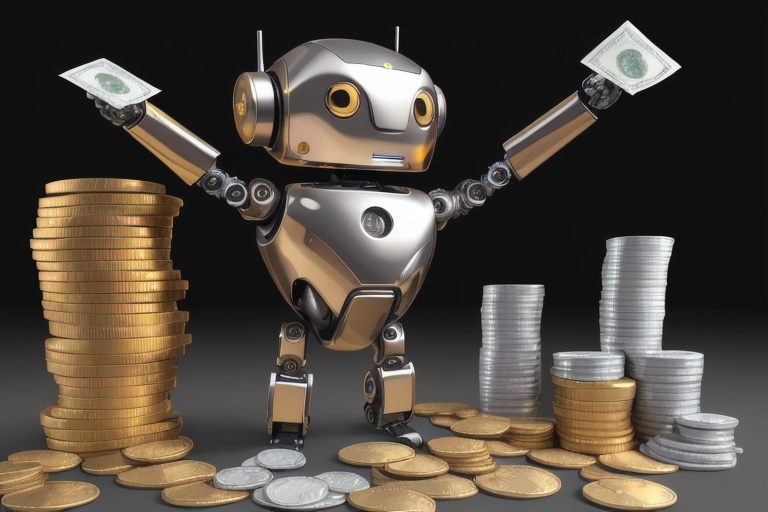Artificial intelligence (AI) stands as one of the most innovative and transformative technological advancements of our time, having significantly evolved from its conceptual origins dating back several decades. At its core, AI harnesses the power of computers and machines to emulate the complex problem-solving and decision-making capabilities that are typically associated with human intelligence. This remarkable field of technology fuses the realms of computer science with extensive datasets to develop algorithms that can predict outcomes and make classifications based on received data. In this comprehensive exploration, we will navigate through the myriad practical applications of AI across diverse industries, examine its influence on the job market, and address the ethical dilemmas it presents.
Artificial intelligence (AI) stands as one of the most innovative and transformative technological advancements of our time, having significantly evolved from its conceptual origins dating back several decades. At its core, AI harnesses the power of computers and machines to emulate the complex problem-solving and decision-making capabilities that are typically associated with human intelligence. This remarkable field of technology fuses the realms of computer science with extensive datasets to develop algorithms that can predict outcomes and make classifications based on received data. In this comprehensive exploration, we will navigate through the myriad practical applications of AI across diverse industries, examine its influence on the job market, and address the ethical dilemmas it presents.
Historical Context and AI Evolution
AI's journey began with visionary works, such as those by pioneers like Alan Turing in the 1950s, and has since undergone dramatic progress. The types of AI systems in existence today vary considerably in capability, with weak AI, or narrow AI, designed to perform specific tasks, while strong AI, or general intelligence, aims to understand and perform any intellectual task that a human being can. Advancements in AI, specifically natural language processing and generative models like ChatGPT, have deeply penetrated everyday life and driven significant progress across various sectors. Despite these advancements, the escalation in AI's prominence has raised imperative ethical considerations guiding its deployment and ensuring it aligns with societal norms and values.
The AI Landscape: Weak AI vs. Strong AI
AI systems can broadly be categorized into two types—weak AI and strong AI. Weak AI excels in handling tasks assigned to it and operates under a limited context, often performing with remarkable efficiency. Strong AI, on the other hand, embodies an advanced level of cognitive performance that enables it to tackle general tasks that would typically require human intellect. Although strong AI remains largely theoretical, ongoing research and development efforts aim to bring such systems closer to reality.
The Rise of Natural Language Processing and Generative Models
Natural language processing (NLP) has witnessed rapid growth, particularly in its ability to understand, interpret, and respond to human language in a way that mirrors human-like interaction. Generative models like ChatGPT represent the incredible progress within this domain, offering conversational AI that can generate human-like text.
Industry Applications of AI
Across industries, AI's versatile applications have revolutionized operations and service delivery. In healthcare, AI algorithms assist clinicians in diagnosing diseases and personalize patient care with predictive analytics. In finance, AI powers fraud detection systems and algorithmic trading, providing real-time decision-assistance in dynamic environments. Retailers harness AI to enhance customer experiences through personalized recommendations and optimized supply chains. Furthermore, in the automotive industry, AI enables safety features and is the driving force behind the development of autonomous vehicles.
AI's Impact on the Job Market
While AI's integration into the workforce has streamlined many processes, it has also fueled concerns regarding job displacement. However, AI also creates new opportunities and markets. The demand for AI-related skills is growing, leading to new job categories and career paths in data science, machine learning engineering, and AI ethics.
Ethical Considerations in AI
As AI's capabilities surge, so does the urgency to establish ethical frameworks for its application. Paramount among these considerations are concerns for privacy, security, and the potential for biases ingrained in AI algorithms. Leading industry players, such as IBM, spearhead the promotion of ethical AI practices, emphasizing the importance of transparency, accountability, and fairness in AI systems.
The coming sections will delve into each of these topics in detail, offering further enlightenment on the role of AI in our lives and its impact on the fabric of society.
It is important to note that AI, while replete with opportunities, also comes with its share of challenges. Ensuring the ethical use of AI, understanding its impact on employment, and utilizing its potential across industries will be pivotal in shaping a future where technology and humanity coexist harmoniously. The ensuing deep dive into AI's applications, implications for the workforce, and moral considerations will provide a comprehensive understanding of how AI continues to shape and redefine the boundaries of innovation.
Information for this article was gathered from the following source.




